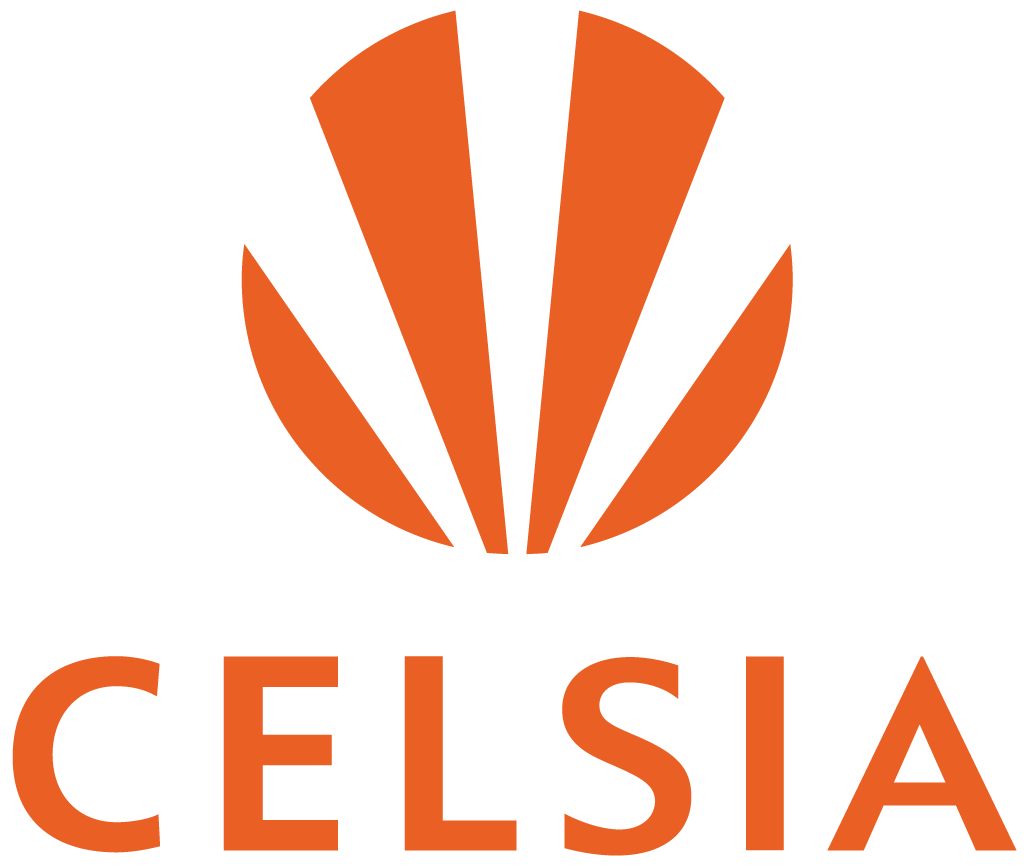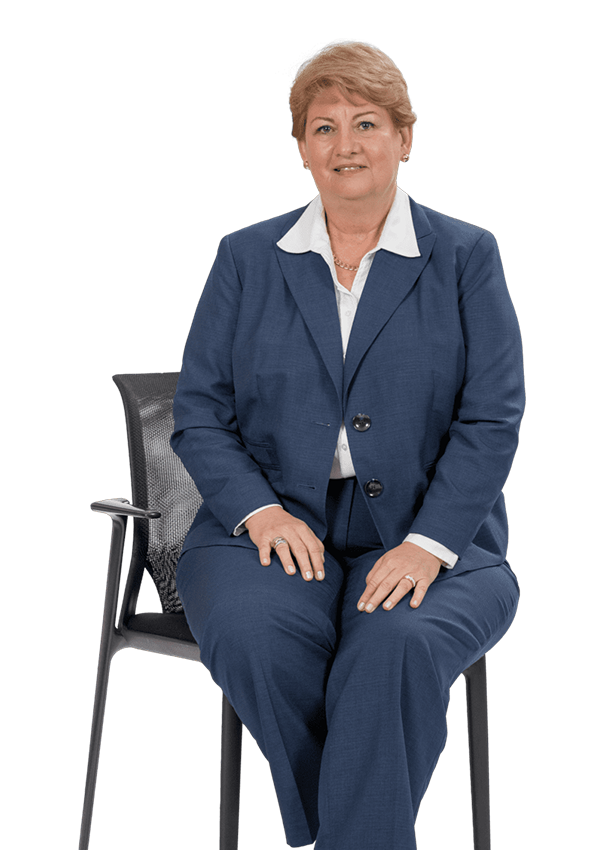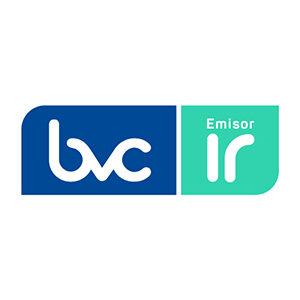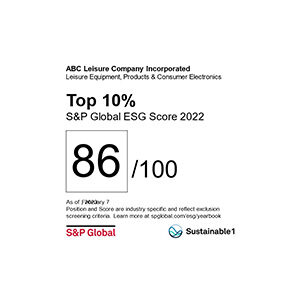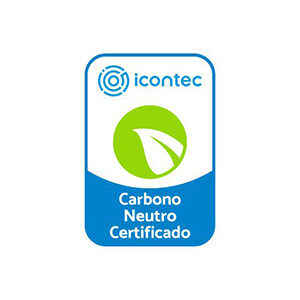We have high Corporate-Governance Standards with which we strengthen relationships with our Stakeholders, based on trust and transparency.
GRI (3-3) Celsia has Bylaws, Codes and Policies that establish the guidelines regarding the operation of the Management and Administrative Bodies, which define the way in which decisions are made, Shareholders’ rights, information disclosure so that it is timely, clear and sufficient, as well as action guidelines for those who are part of the Company, among other matters.
These Codes and Policies are published on our Website for the knowledge of all Stakeholders. They are periodically reviewed to advance best practices and be adapted to the Company’s realities and are permanently implemented by all employees, who are aligned with the importance of fulfilling their purpose.
Our Management
GRI (3-3) We have different Corporate Documents that constitute the guidelines and directives in terms of Corporate Governance. They establish clear rules and provisions and are known to the members of the Board of Directors, Senior Management and, in general, all employees for their proper management and implementation.
- Bylaws
- Code of Good Corporate Governance
- Business Code of Conduct
- Protocol to Manage Conflicts of Interest
- Operations Policy among Related Parties
- Diversity Policy
- Competition Policy
Governance Structure
Corporate Governance
Shareholders’ Assembly
GRI (2-9) The Shareholders’ Assembly is Celsia’s highest Corporate Body and is made up of all the holders of Company Shares. It meets at least once a year to learn the results and the most-relevant information, as well as to deliberate and decide on certain matters as established in the Bylaws. The foregoing is aimed at guaranteeing Celsia’s proper management, administration, sustainability and growth.
The Assembly is the space that Shareholders have to learn about the management of Directors and Administrators, make decisions and present their opinions and recommendations.
GRI (2-13) Celsia’s Bylaws (approved by the Shareholders’ Assembly) establish that the broadest mandate to manage the Company shall be delegated to the Directors and, therefore, this Corporate Body will have sufficient powers to order the execution or entering into of any act or contract included in the Corporate Purpose, as well as to adopt the necessary determinations in order for it to fulfill its purposes. Likewise, the Bylaws indicate that – among the duties that the Shareholders’ Assembly – has is to delegate to the Board of Directors, when it deems it appropriate and for specific cases, one or more of its duties that can be delegated in accordance with current laws, which includes authority assignments. for economic, environmental and social issues.
Ownership Structure
No instance of the government has shares of Celsia in a proportion greater than 5%.
There is no founding family that has shares in a proportion greater than 5%.
- Grupo Argos S.A.: A 52.93% stake;
- Porvenir Moderate Mandatory Pension Fund: An 8.01% stake;
- Protección Moderate Mandatory Pension Fund: A 7.07% stake;
- Other Shareholders: A 31.99% stake.
The Board of Directors
Composition:
GRI (2-9) (2-11) Get to know the profiles of the members of our Board of Directors:
GRI (2-9) For the past four years, our Board of Directors has been made up of seven independent directors.
Relevant Issues
GRI (2-16) Among the most-relevant issues that Management presents to the Board of Directors for decision making are:
- Financial Results;
- Budget;
- Strategy;
- Traditional Businesses;
- New Business;
- Sustainability: Environmental, Social and Governance (ESG) Issues;
- Innovation;
- Human Talent;
- Risks;
- Regulatory Affairs; and
- Project Monitoring.
It should be noted that the Administration updates the Board of Directors on the issues that have been made known to it through the different channels they have to interact with Stakeholders. Through these channels, Directors find opportunities to improve, resolve concerns, and meet the expectations of Shareholders and Investors.
GRI (2-16) In 2022, the following topics – among others – were presented to the Board of Directors:
- Results and Operational and Financial Matters;
- Issues Associated with Risks and Security;
- Project Progress;
- Strategic Issues;
- Regulatory Issues; and
- Projects.
GRI (2-12) The Steering Committee and the Board of Directors know, discuss and approve the Company’s Strategy in relation to environmental and social issues, which the teams involved working on these issues present the objectives and goals, the progress and the Action Plans at the corresponding meetings, so that the Managers and Directors establish the guidelines and directives on which Celsia should focus to address these issues and prepare the documents that may arise. In addition, Management in 2022 made available to the Shareholders’ Assembly a report to the Shareholders’ Assembly on environmental, social and governance issues.
GRI (2-12) In order to identify and address our impacts on the economy, the environment and people, the Administration presents environmental, social and economic issues to the Support Committee (Sustainability and Corporate Governance Committee) and the Board of Directors for their knowledge, analysis, recommendations and decision making. Thus, the teams in charge of environmental, social and governance issues work permanently on the strategy, activities and action plan for the company, which are presented to the members of the Support Committee and the Board of Directors.
Election of the Members
GRI (2-10) Through the Electoral-Quotient System (unless the designation is unanimous), the General Shareholders’ Assembly carries out an individual election process for the members of the Board of Directors every year, in which the following items are taken into account:
- Advance notice with which Shareholders must submit their proposals. Proposals for the election of members of the Board of Directors must be submitted no less than five (5) business days before the date set for the General Shareholders’ Assembly, in which the respective election will take place.
- Gender diversity.
- Recognition of the professional trajectory, experience in business management, diversity of knowledge, outstanding personal and moral qualities of the candidates.
- Age limit. People who are 72 years of age or older cannot be elected, unless the Assembly expressly authorizes it.
- Fulfillment of the requirements by the Directors in a certain period.
Remuneration
GRI (2-19) (2-20) The General Shareholders’ Assembly is in charge of establishing the remuneration of this Governing Body. To do this, it takes into account its structure, obligations, responsibilities, as well as the personal and professional qualities of its members, their experience and the time they must dedicate to this activity. The Company has not established any type of variable compensation for the members of the Board of Directors. The people associated with Grupo Argos S.A. do not receive remuneration for their participation in the Board of Directors’ Committees.
Training
GRI (2-17) At Celsia, we always seek to expand and strengthen the knowledge of the members that make up the Board of Directors and keep them updated with new trends, projections and relevant issues for the Organization; for example, new technologies, global trends in utility strategy, electric mobility, energy storage, markets and other important aspects. This facilitates decision making and ensures the effective, active participation of members during meetings.
Training in Risks
- Alejandro Uribe, Market-Analysis Leader
- María Mercedes Aguilar, from the Risk-Trend Assessment and Management Team.
- Carlos Solano, Regulatory Affairs Leader.
- Claudia Salazar, Leader of Human Talent and Organizational Solutions.
- Santiago Arango Trujillo, Corporate Affairs Leader
The Board of Directors learned about the risks associated with:
- Occupational Health and Safety;
- Business and Regulatory Issues;
- Changes in the Sector and Tax Reforms; and
- Legal Matters.
Training in Cybersecurity
- Claudia Salazar
- Hugo Canaval and
- Sigifredo Hernández (Technology Team).
The main achievements for Cybersecurity-Risk Management and the challenges in this matter were presented, as well as the implementation of the Cybersecurity Guide, the Fiscal Auditor’s Report on this matter and the Playbook to manage a cybersecurity crisis were presented to the Audit, Finance and Risk Committee.
Training in Climate-Change Risks and Opportunities
- Santiago Arango, Corporate Affairs Leader
The concept of circular economy, its relevance, progress and activities carried out on carbon neutrality were presented to the members of the Sustainability and Corporate-Governance Committee.
Training in Environmental and Social Issues
- Marcelo Álvarez, Generation Leader.
- The Bloomberg Team, formed by Guillaume Fouche, Ryan Fisher, Nesol Nsitmen and Michael Kenefick.
- The Board of Directors learned about the social issues developed in Company projects and progress in Human-Rights issues.
- Global trends in utility strategy, electric mobility and energy storage.
Assessment
GRI (2-18) Based on the Good Corporate-Governance Code (Numeral 7, Chapter III), the Board of Directors and its Committees are evaluated by an external and independent expert, during the period for which they were elected; in the year that they are not evaluated under this methodology, a self-assessment of their management is carried out. The 2021 Financial Year – through which the Board of Directors, as well as its Committees and the Celsia CEO – carried out a self-assessment on its operation and structure is still valid. The 2022 assessment will be carried out in the First Quarter and by April 2023, we will publish the results to all our Stakeholders.
Steering Committee

CEO

Human and Administrative Management Leader

Generation Leader

Comercial Leader

Innovation Leader

Corporate Affairs Leader

Centroamérica Leader

Transsmition and Distribution Leader

Finance Leader

Regulatory Affairs Leader

Assistant to the CEO
GRI (2-13) Our Steering Committee is committed to Celsia through:
- Living and being an example of the Pillars of the Organization’s Culture, being promoters of change management with commitment, flexibility and participation in projects that require it, reflecting visibility before their work teams and other employees impacted.
- Defining communicating and ensuring compliance with the Organization’s Policies, Objectives and Goals.
- Guiding the arrival of the Organization to other regions of Colombia and abroad, contributing to compliance with regulations and strategic planning.
- Leading the development of products and services, establishing and developing commercial strategies with new businesses and innovating in the way current and potential clients are interacted with and served, focusing on their growth, development, satisfaction and the Company’s positioning.
- Keeping the Company healthy in terms of finances and with the ability to continue its expansion process, by ensuring the efficiency of operating processes and guaranteeing the availability and reliability required by clients and Sustainability Management.
- Promoting the Organization’s change and transformation, seeking the development of talent and the adequate protection of the Company’s people and assets, aligned with the Business Strategy.
- Reinforcing the importance of acting with integrity.
Executive-level roles that are directly related to economic, environmental and social issues are:
- Financial Leader (economic);
- Commercial Leader (economic);
- Generation Leader (environmental and social);
- Transmission and Distribution Leader (environmental and social);
- Human-Talent and Organizational-Solutions Leader (social); and
- Corporate-Affairs Leader (social and sustainability).
These roles, which are part of the Steering Committee, are also in charge of reporting to the Board of Directors on the Company’s environmental, social and economic issues.
Climate-Change Monitoring and Supervision
The Task Force on Climate-Related Financial Disclosures (TCFD) (Governance – a.) We are aware that climate change is humanity’s greatest current challenge, which is why it became a relevant topic of study for the Board of Directors and its Support Committees. Each instance monitors and supervises the defined objectives and goals related to climate change and the respective progress that has been achieved during the year, to analyze the impacts that it could have on the Company’s Strategy.
The Teams manage and present the progress of the Climate-Change Strategy to the Sustainability and Corporate-Governance Committee, giving a complete context of the Action Plan and how it is doing toward meeting each established goal and objective. Subsequently, the Chairman of this Committee is in charge of taking the information to the Board of Directors; that is, both the Board and the Support Committee actively participate in this issue, making comments, suggestions and recommendations, ensuring compliance with the strategy.
The Sustainability and Corporate-Governance Committee meets at least twice a year or when necessary. During 2022, there was a meeting in which the Committee Chairman presented the progress, Action Plans and challenges, in this matter, to the Board of Directors.
In these sessions, guidelines are established and strategic business decisions are made to leverage the fulfillment of climate change related goals.
Principal Results in 2022
GRI (3-3)
Once again, we filled out the Código País Survey for the issuers of securities in Colombia, in which we reported the adoption of the recommendations on Good-Governance Practices.
We managed the cases reported through the Transparency Line and the conflicts of interest reported by Celsia’s Directors, Administrators and employees.
We worked on the implementation of the Transparency or Anti-Corruption Law in the Company’s Operations (Law 2195 of 2022), through the analysis of the impacts it has, the definition of a Work Plan and the execution of a Disclosure Plan of the implemented measures.
We worked on Decree 151 of 2021 and Circulars 031 of 2021 and 012 of 2022, from the Financial Superintendency of Colombia, related to information disclosure by issuers of securities, as well as in the Implementation Plan regarding Circular 012 of 2022, which was sent to this entity under the established terms.
We sensitized our employees on issues of Good Corporate Governance, through the socialization of six pieces, through various internal-communication channels, to permeate knowledge on this highly relevant matter in Celsia.
For transparency and good corporate governance, since 2013, which means that we have been receiving this distinction for 10 consecutive years.
We were rated as one of the most-sustainable companies in Colombia and the world, which means recognition of leadership in the management of good social, environmental and economic practices.
We were recognized as one of the most-sustainable companies in the world in the S&P Global Sustainability Yearbook, being the only Colombian company in the electricity sector to receive this recognition.
GRI (3-3) Short-, Medium- and Long-Term Objectives:
Short Term(0 to 2 years)
- Continue training employees in the application of the Corporate Documents that we have adopted in terms of good Governance (Bylaws, Code of Good Governance, Code of Business Conduct, among others), and the disclosure of the measures implemented in relation to the Law 2195 of 2022 ((Transparency or Anti-Corruption Law).).
- Train the teams in the information that the Company must disclose (periodic information and relevant information) according to the provisions of Decree 151 of 2021 and Circulars 031 of 2021 and 012 of 2022, from the Financial Superintendency of Colombia.
- Continue the implementation of the Action Plan defined by the Board of Directors to close the gaps in its evaluation.
- Review the Code of Good Governance and other Corporate Documents to make any adjustments deemed necessary and advance good practices.
Medium Term(3 to 5 years)
- Continue reviewing the policies adopted in terms of Good Corporate-Governance Practices in order to keep them updated in accordance with better standards.
- Train the Company’s Directors, Administrators and employees, so that they are aware of and apply the guidelines that Celsia decides to adopt, in case of adjustments or changes in these provisions.
Long Term(6 or more years)
- Continue monitoring national and international trends in good-governance practices that can be implemented by the Company to strengthen itself in the matter and generate value for Shareholders and Investors, while seeking its sustainability.
- Train the Company’s Directors, Administrators and employees so that they are aware of and apply the guidelines that Celsia decides to adopt, in case of adjustments or changes in the matter.
Corporate Governance: The system of principles, policies and guidelines that guides the way of governing the Company and relations with the different Stakeholders.
Stakeholders: The group of people who are part of the Organization and others with whom various relationships are maintained. Receiving and managing their suggestions, comments and expectations is essential to achieve compliance with the strategy.
Corporate Documents: The documents approved by Celsia’s Assembly, Board and/or Steering Committee that determine the framework and guidelines regarding a certain matter, so that Stakeholders have performance parameters aligned with those of the Organization.
